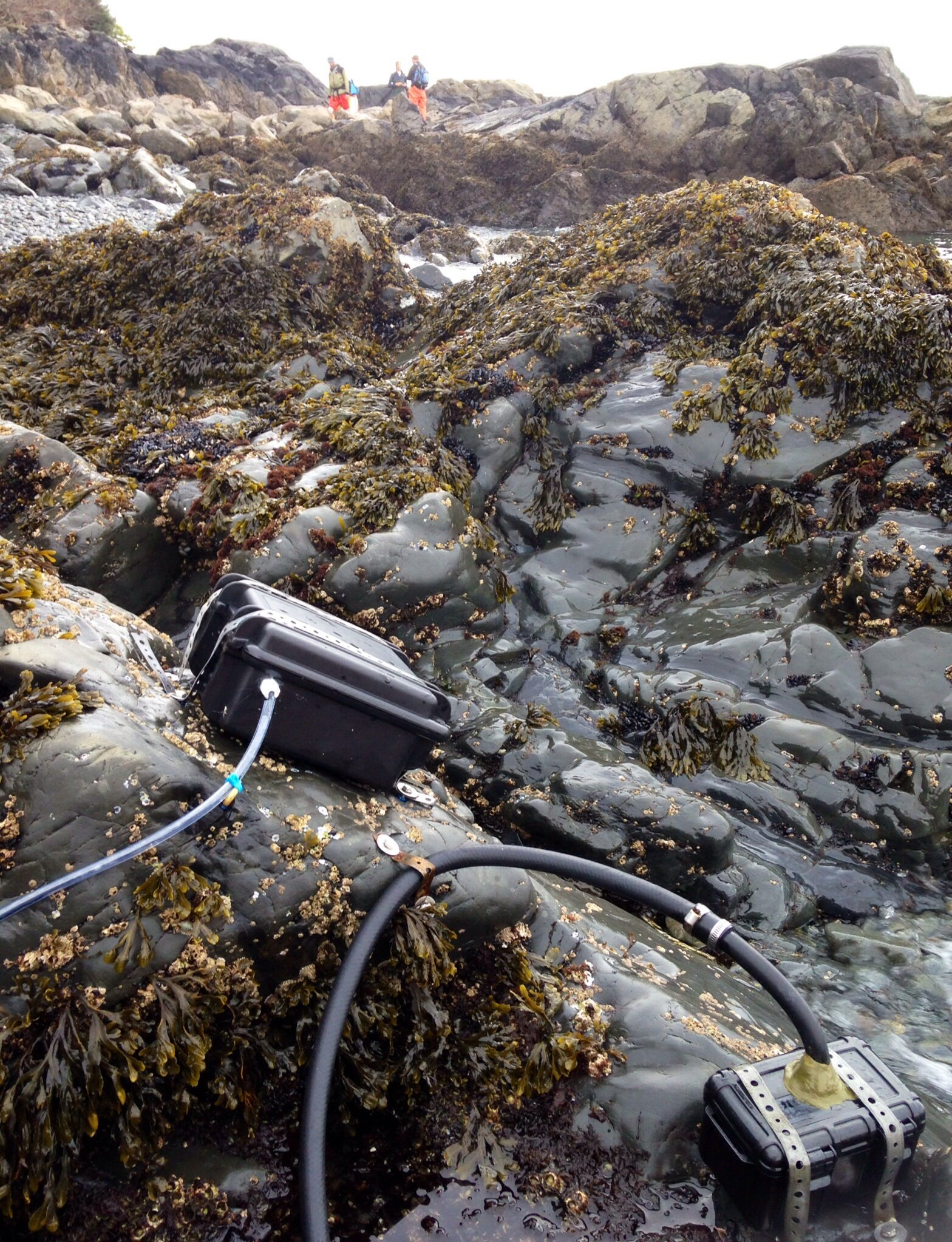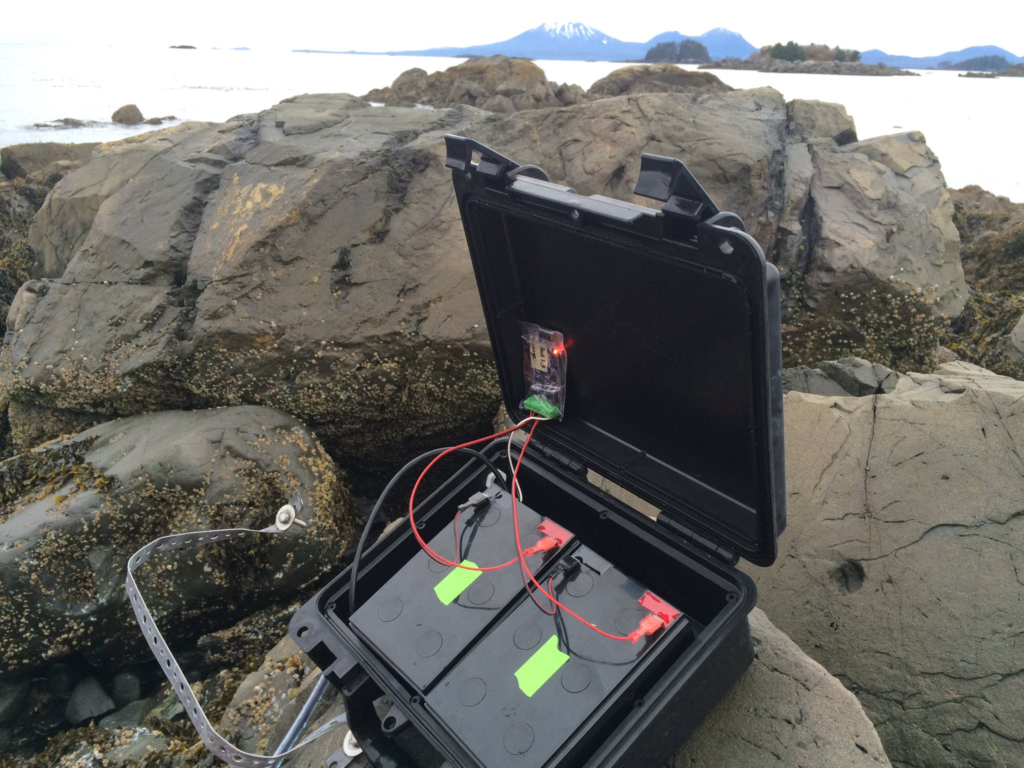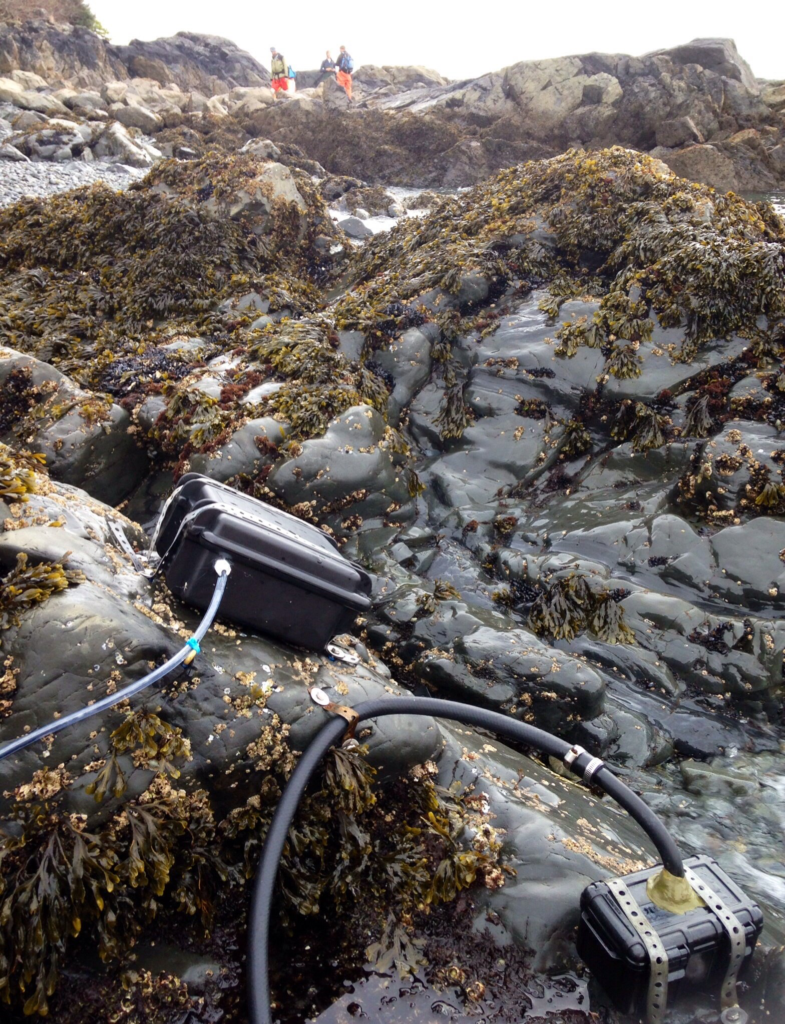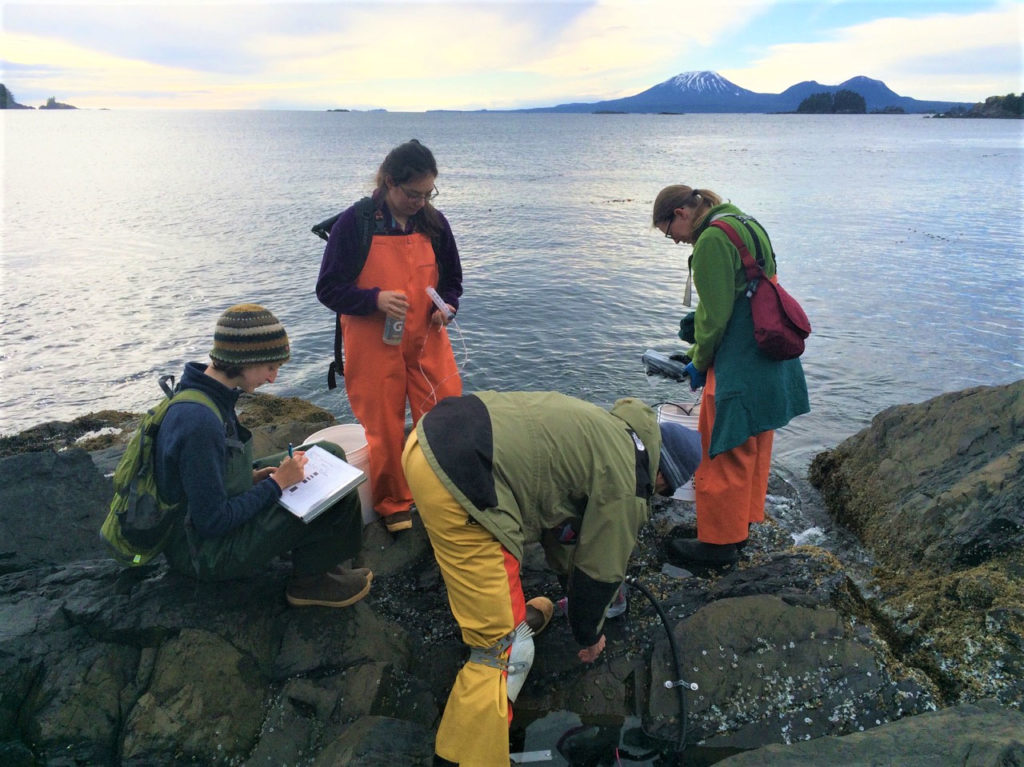
Effects of multiple aspects of climate change on marine biodiversity and ecosystem functioning
Alaska is currently experiencing accelerated and more pronounced impacts of climate change than the lower 48, making it an ideal place to study the effects of ocean warming and acidification.
The largest and longest-term manipulation of climate conditions in a marine environment, to date, is currently underway in Sitka. Researchers from the University of California Irvine, led by Dr. Cascade Sorte and Dr. Matt Bracken, with collaborators at UC Santa Cruz and San Diego State University explored how climate change is impacting coastal marine environments in Sitka. Using relatively low-tech equipment, researchers can raise water temperatures and pH levels in tidepools to mimic conditions projected to occur over the next 50-100 years. In addition to manipulating conditions in the field, extensive biodiversity studies were also conducted.
The Science Center provided these researchers with a valuable workspace to process and store samples and the gear necessary for maintaining their field site. We also aided the groups’ scientific outreach efforts by plugging them into high school classes and elementary school summer camps. We were able to do what we do best– make local science more accessible to all!




Preliminary Findings:
The research team identified 65 intertidal species overall (sometimes observing 39 species in one tidepool) and collected over 1,700 water samples to analyzed for pH and alkalinity. This project is ongoing. More information can be found at the Sorte Lab at UC-Irvine.
Project Contacts: Cascade Sorte & Matthew Bracken
